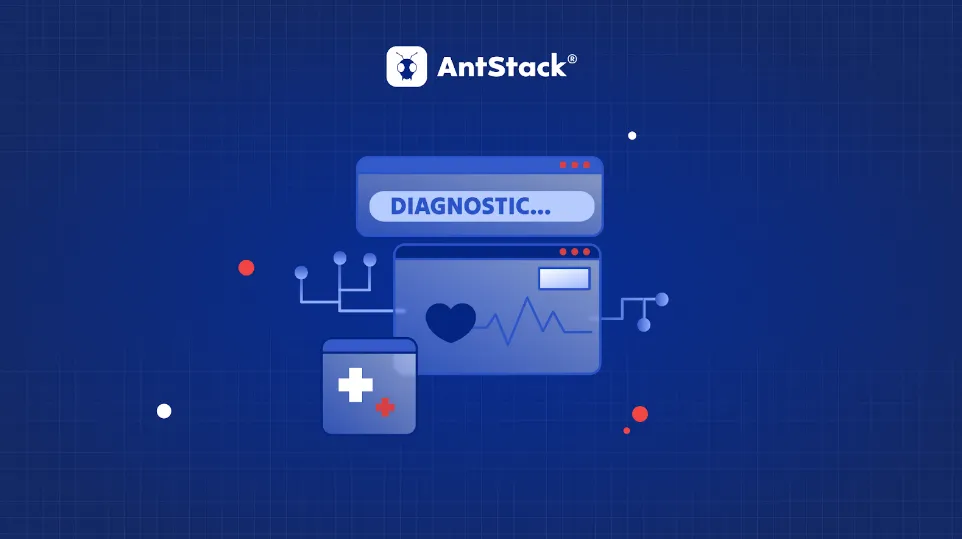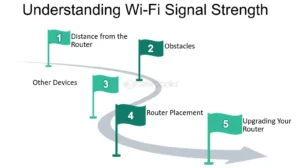As a doctor, understanding AWS Lambda is essential for optimizing healthcare operations. This serverless architecture allows you to automate tasks like appointment scheduling and insurance claims, while enhancing data management.
You’ll benefit from its cost-effective pay-as-you-go model and automatic scalability. Furthermore, integrating AWS Lambda with other services guarantees compliance with HIPAA, safeguarding patient data. By leveraging its capabilities, you can improve patient care outcomes and streamline workflows. Explore further to discover additional benefits tailored for your practice.
Understanding Serverless Architecture in Healthcare
As healthcare organizations increasingly adopt innovative technologies, understanding serverless architecture becomes essential. AWS Lambda health solutions allow you to efficiently scale and respond to varying data demands without the burden of managing server infrastructure.
By leveraging serverless applications in healthcare, you can reduce costs tied to maintenance and redirect resources to innovative healthcare solutions. Advanced security features integrated within serverless environments enhance data protection, guaranteeing patient confidentiality.
Additionally, serverless architecture’s benefits automate repetitive tasks, facilitating improved efficiency and enabling your developers to focus on crafting effective healthcare solutions for AWS.
This adaptability and resource optimization greatly enhance patient care and assure compliance with healthcare regulations, positioning your organization for success in a rapidly evolving landscape.
Key Applications of AWS Lambda in Medical Settings
AWS Lambda offers transformative applications in medical settings, streamlining processes and enhancing patient care. By leveraging serverless applications for healthcare, you can implement:
- Integration and Unified Data Management: Aggregate patient data from multiple sources, improving insight and aiding clinical decisions. This allows for comprehensive access to patient health history, ensuring that healthcare providers have all necessary information at their fingertips. Lambda enables creation of a centralized repository combining EHRs, imaging systems, and lab data for complete patient visibility.
- Automation of Workflows: Automate appointment scheduling, insurance claims processing, and EMR updates to enhance operational efficiency and reduce staff workload.
- Real-Time Data Integration: Enable real-time querying of EHR systems via APIs, providing instant access to critical patient information and facilitating rapid decision-making.
These applications not only improve workflow efficiency but also foster better patient outcomes through data-driven, coordinated care, underscoring the importance of AWS Lambda in modern healthcare settings.
Advantages of Utilizing AWS Lambda for Healthcare Professionals
By adopting AWS Lambda, healthcare professionals can greatly enhance their operational capabilities and patient service delivery. This serverless architecture offers scalability, flexibility, and cost-effectiveness, making it easier for you to prioritize patient care.
Healthcare systems can leverage event-driven applications to automate patient monitoring and alerts, reducing manual intervention and improving response times. Additionally, the pay-only-for-what-you-use model allows healthcare systems to minimize their operational expenses significantly while focusing resources on patient outcomes.
| Advantage | Benefit |
| Cost Optimization | Reduces operational costs by charging only for resources used. |
| Automatic Scaling | Guarantees applications remain responsive under varying workloads. |
| Enhanced Patient Care | Provides a unified patient view for better treatment decisions. |
| Improved Communication | Facilitates collaboration among providers with holistic data access. |
| HIPAA Compliance | Safeguards sensitive data, guaranteeing adherence to regulation standards. |
These features not only streamline your daily operations but also empower you to deliver more personalized and efficient care.
Integration of AWS Lambda With Other AWS Services
Leveraging the advantages of AWS Lambda can greatly enhance the functionality of healthcare applications, particularly through its seamless integration with other AWS services. This integration offers significant benefits:
- API Gateway Integration: Utilize Amazon API Gateway to securely manage patient data while ensuring robust authentication and control over sensitive information. With built-in authentication tools including API Keys, IAM, and Cognito User Pool, healthcare systems can implement multiple layers of security for accessing patient records.
- HealthLake Compatibility: Integrate with AWS HealthLake to support FHIR-based APIs for thorough data management and analysis, empowering population health initiatives. This integration enhances real-time data processing capabilities, allowing for more timely insights.
- AI Services Enhancement: Combine AWS Lambda with Amazon AI services to extract medical insights, improving patient care and optimizing data processing efficiency.
These integrations not only improve scalability and performance but also enhance security and facilitate informed decision-making, ultimately supporting better patient outcomes in healthcare systems.
Navigating Challenges and Future Trends in Healthcare Technology
As healthcare technology advances rapidly, organizations face significant challenges that can hinder effective implementation and growth. Cybersecurity threats, particularly ransomware attacks, are escalating, affecting patient care and leading to exorbitant breach mitigation costs.
With over 80% of attacks disrupting care, securing IT environments is essential. Workforce shortages compound these issues, with a predicted global shortfall of 10 million healthcare workers by 2030. Financial pressures further strain operations, necessitating value-based care models and sustainable practices to maintain quality amid rising expenses.
Additionally, evolving regulatory frameworks, like the EU AI Act, require organizations to adapt swiftly. Proactive strategies, including continuous training and investment in innovative digital solutions, are vital in maneuvering through these challenges and shaping a resilient future in healthcare technology.
Healthcare systems can leverage serverless architecture to handle unpredictable traffic peaks during emergency situations while minimizing infrastructure costs and maintenance overhead. Furthermore, organizations must prioritize investment in core technologies to enhance overall operational efficiency and patient care outcomes.
Frequently Asked Questions
How Does AWS Lambda Ensure Patient Data Confidentiality?
AWS Lambda guarantees patient data confidentiality by encrypting data both in transit and at rest. It utilizes IAM roles for access control, maintains HIPAA compliance, and implements fine-grained permissions for authorized personnel only.
What Programming Languages Are Supported by AWS Lambda?
AWS Lambda natively supports languages like Node.js, Python, Ruby, Java, Go, C#, and PowerShell. You select specific runtime versions during configuration to optimize performance and streamline deployment within your applications. Custom runtimes extend possibilities further.
Can Lambda Handle Interoperability With Non-Aws Systems?
Lambda seamlessly bridges non-AWS systems, effortlessly transforming diverse healthcare data formats while ensuring secure, compliant interactions. It’s like having a universal translator for healthcare data—facilitating interoperability with remarkable efficiency and precision across various platforms.
What Are Common Use Cases for Lambda in Telehealth?
In telehealth, you can use Lambda for automating patient data processing, managing appointment notifications, and streamlining communication between clinicians and patients. It efficiently handles data ingestion, transforming workflows while ensuring compliance and enhancing patient engagement.
How Do I Monitor AWS Lambda Functions Effectively?
Monitoring your AWS Lambda functions means mastering metrics. Measure invocation counts, duration, error rates, and concurrent executions. Utilize tools like CloudWatch and AWS X-Ray, setting sensible alerts for swift issue resolution to guarantee seamless service.
Conclusion
In the rapidly evolving landscape of healthcare technology, AWS Lambda represents a transformative force, juxtaposing traditional server architectures with efficient, serverless solutions. As you harness its capabilities, you’ll streamline operations while facing the challenge of complexity and integration. Balancing innovation with practical application will empower you to enhance patient care and operational efficiency. Embracing AWS Lambda not only prepares you for today’s demands but also paves the way for future advancements in healthcare technology.











